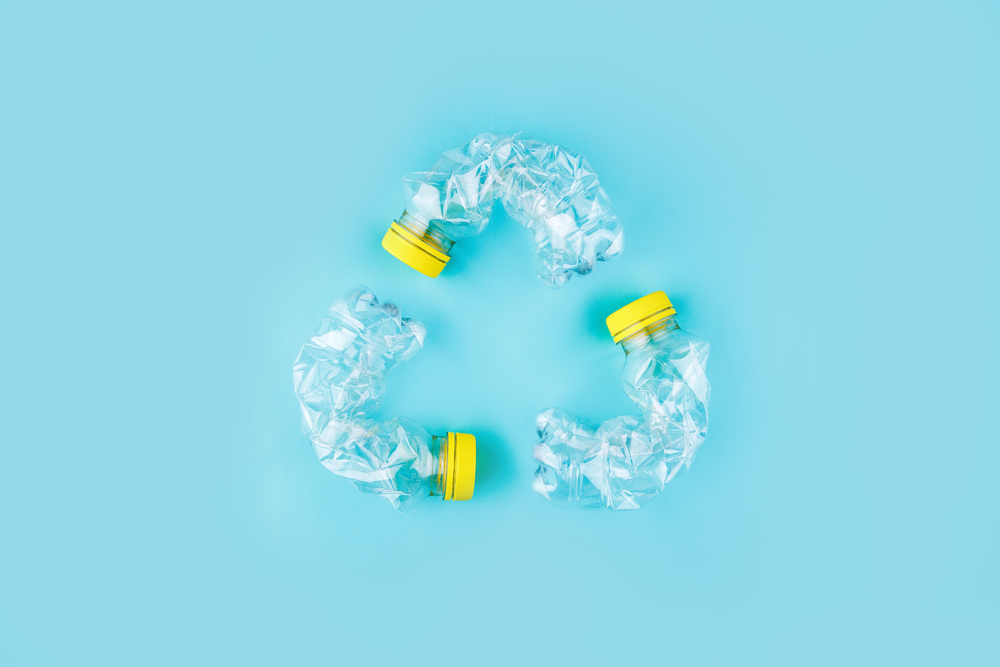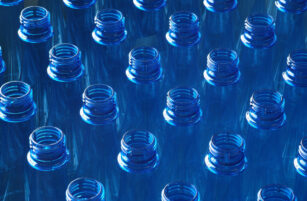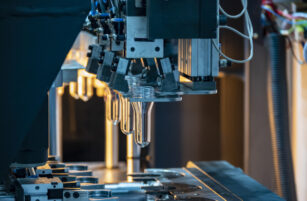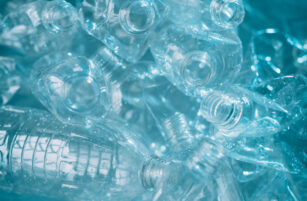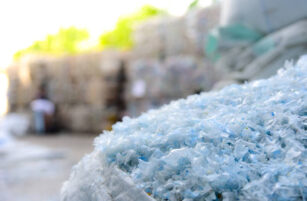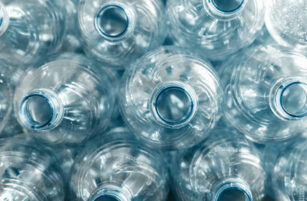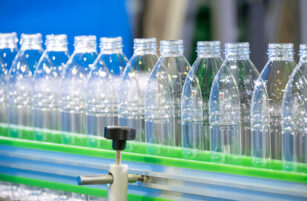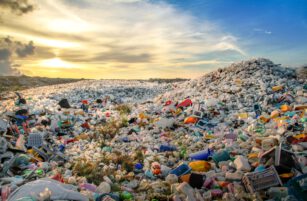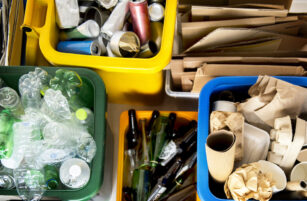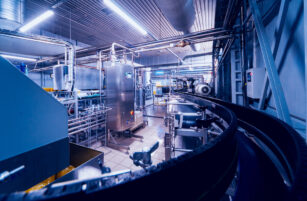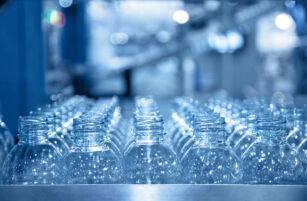Insight Focus
- Industry builds for future with new global rPET projects announcements.
- European supermarkets press ahead with plastic packaging elimination.
- Bottlers launch new initiatives to tackle African collection.
This Month’s Top Trends
1. Latest rPET Projects from Around the World
February saw a flood of new rPET project announcements as investors and industry stake holders continue to put in place production necessary to meet rapidly growing demand around the world.
Loop Industries has chosen the Chemesis Industrial Platform in Saint-Avold, France as the location for its future rPET manufacturing facility, with a planned capacity of 70kta of recycled PET resin and polyester fibre. Construction at the site is scheduled to begin in 2025, with first production slated for 2027.
Circularix has begun production at its first plant, located in Hatfield, Pennsylvania. The plant has the capacity to produce 55 million pounds of food-grade (equivalent to around 25kta) of post-consumer rPET pellets per year.
Formed last year, Circulalrix is a JV between HPC Industries and Macquarie Group. The company is reported to have also ordered equipment for a further 4 plants — in Arizona, Florida, Texas, and the Pacific Northwest — all similar production scale, to commence operation by Q1 2025.
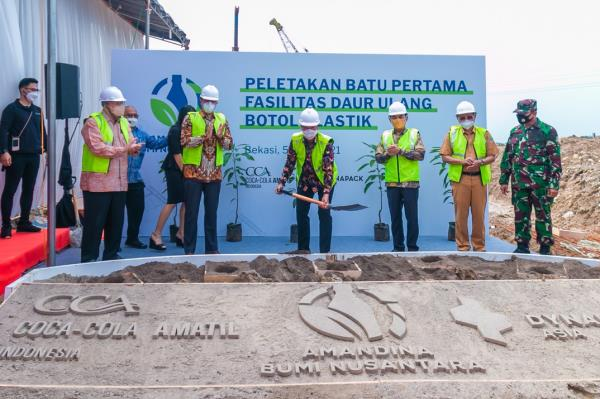
Coca-Cola Europacific Partners (CCEP) Indonesia and Dynapack Asia, a regional rigid plastic packaging and components manufacturer, have inaugurated the Amandina Bumi Nusantara polyethylene terephthalate (PET) recycling plant in Bekasi, West Java.
The facility is the first bottle-to-bottle plant in Indonesia and has a production capacity of 25kta of food-grade rPET pellet, which will be sold into the local bottling industry. Coca-Cola is committed to buying at least 50% of the plant’s output and has a global goal of reaching 50% recycled content in its packaging materials by 2025.
Alpla, together with joint venture partners Ecohelp and United Polymer Trading, has opened a new PET recycling plant in Romania. For Alpla, the 18kta bottle-to-bottle plant is the latest in a string of investments within the rPET recycling sector, with global assets totalling around 203kta of rPET and 74kta of rHDPE.
2. European Supermarkets Press Ahead on War Against Plastics
Whilst the momentum towards greater rPET inclusion and more sustainable packaging alternatives has seemingly paused, or even reversed in some cases, major European supermarket chains continue to press ahead with their war against plastics.
Many of the major European supermarkets are aiming to slash overall plastic consumption, a move that will particularly impact PET thermoformed containers, a segment that is already experiencing slower demand within Europe.
Amongst the changes, Tesco announced that its own-brand detergent pods will be packed in cardboard packaging as opposed to the previously used rigid plastic tubs.
The change is expected to eliminate the use of around 252 tonnes of plastic annually, according to the supermarket chain.
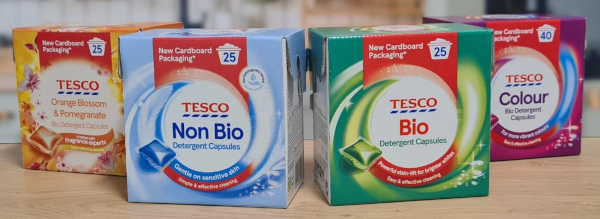
The move comes as part of Tesco’s 4Rs packaging strategy to tackle plastic waste. Since the launch of the 4Rs strategy in August 2019, “Tesco has removed 1.8 billion pieces of plastic and reduced packaging by more than 10,000 tonnes”.
Whilst in the Netherlands, and other European markets, the supermarket chains Lidl, Jumbo, Plus and Aldi have agreed a ‘plastic pact’ to stop providing shoppers with free plastic and paper bags for loose vegetables and fruit.
The five supermarkets say between them they will save 126 million plastic and 10 million paper bags a year with the move.
Another UK supermarket chain, Sainsbury’s, last month announced that it’s removing traditional PET plastic tray packaging across for its beef mince range and replacing it with a vacuum-packed alternative.
According to Sainsbury’s, the new packaging format uses at least 55% less plastic, and is the latest in a series of initiatives by the retailer, which aims to halve the amount of plastic within own brand products by 2023.
3. African Plastics Circularity Gets Boost from Collection Initiatives
Interest in pursuing and developing a circular plastics economy across Africa continues to gain ground, with several developments announced in February.
Bottle collection in Ethiopia got a boost through the launch of a new initiative by Coca-Cola Beverages Africa (CCBA).
The pilot project will see CCBA support 30 bottle collectors with a 1,000 Birr (US$18.56) subsidy for every 1,000 kg of PET bottles collected, on the condition that they hit the minimum agreed collection rate.
CCBA has also set up new PET bottle collection centres across Ethiopia as well as trained more than 15,000 female collectors within the country.
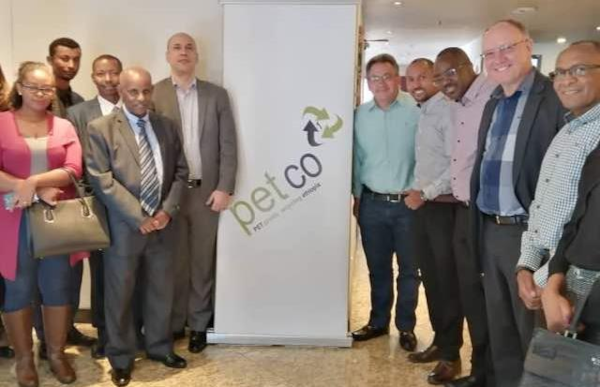
CCBA has also been instrumental in establishing PETCO Ethiopia, aimed at mirroring successes from the South Africa PETCO and Kenya PETCO models, and rallying other industry stakeholders to support the scheme with $150,000 initial funding.
Bottle buy-back and micro-collection/recycling centres continues to multiply across major African cities.
Last month, Slums Going Green and Clean, a Nairobi-based organisation, launched a new campaign rolling out two micro-recycling centres capable of processing 5 tons of mixed plastic waste per month.
Each of the centres is equipped with a shedder, heat press and moulds capable, capable of processing 100 tonnes per year with an investment of around $2000.
The non-profit aims to increase the number of these micro-recycling centres to 15, with capacity to handle 75 tonnes per month by end of 2023.
In Uganda, through an initiative called Plastic Recycling Industries, Coca-Cola Beverages Uganda (CCBU) has partnered with Stanbic Bank Uganda in a bid to reduce plastic waste within the country.
According to the press release, Stanbic Bank Uganda will “identify designated collection spaces that will serve as plastic waste collection centers around Uganda, ensure appropriate security and maintenance of the collection centers, and provide appropriate messaging to the public regarding environmental protection”.
